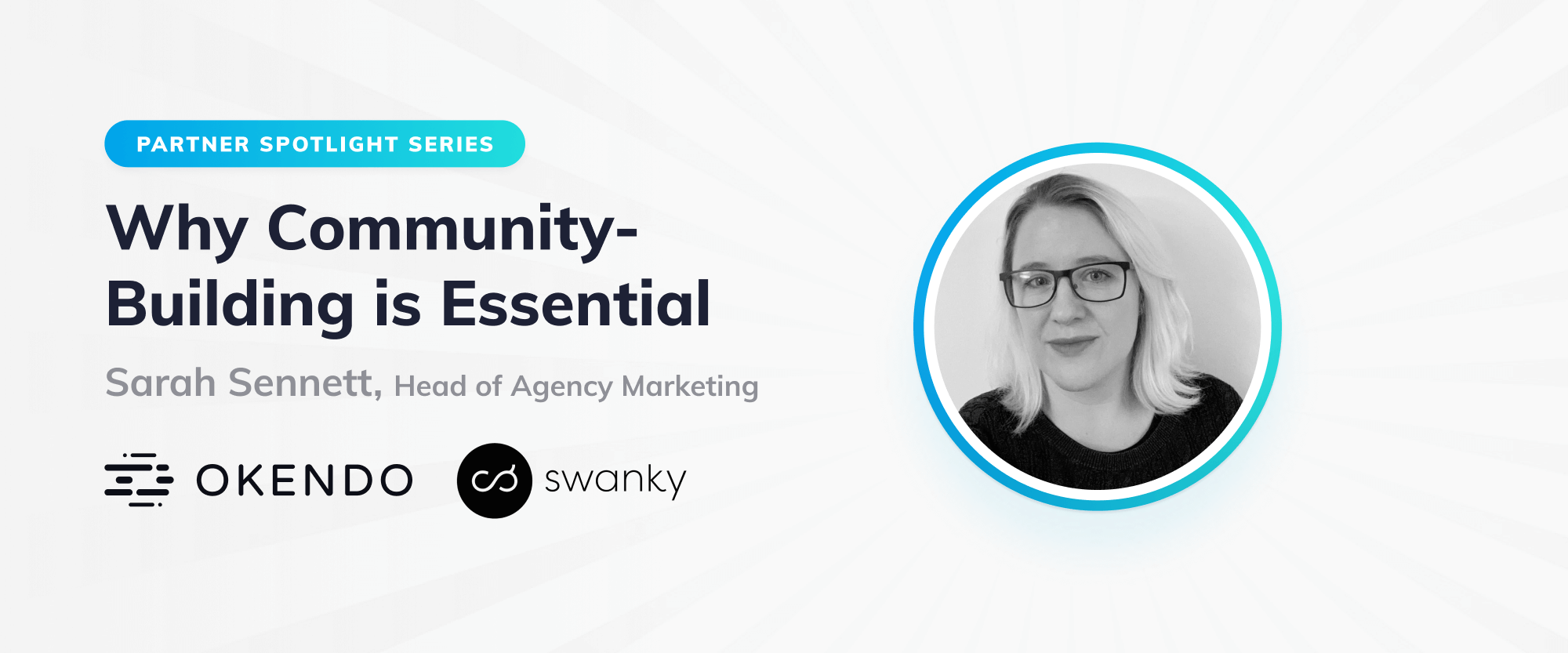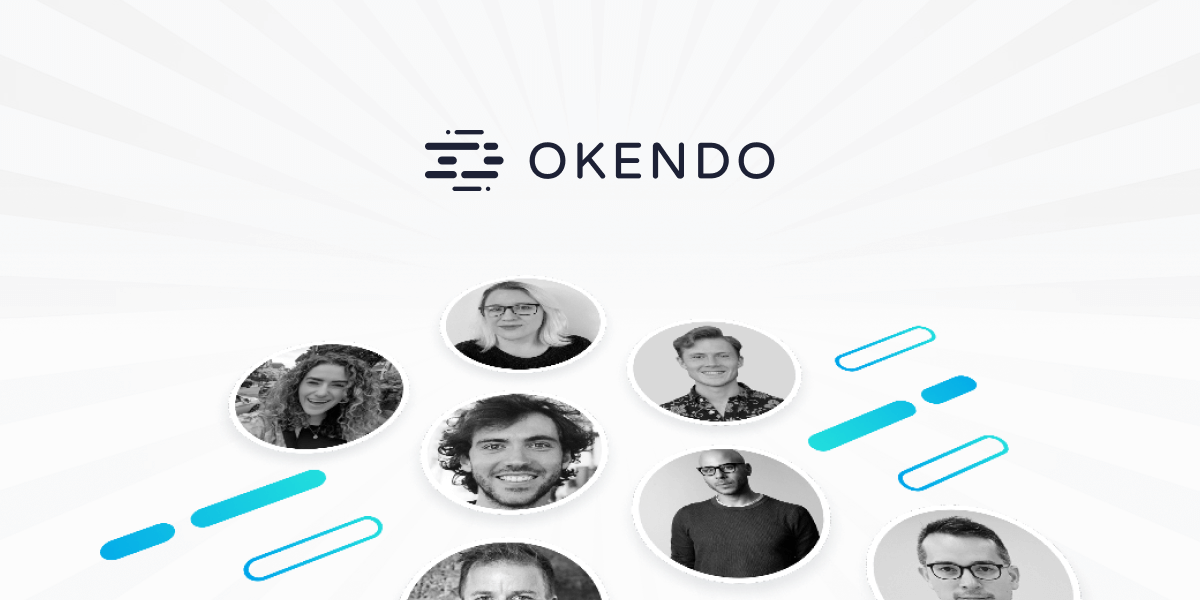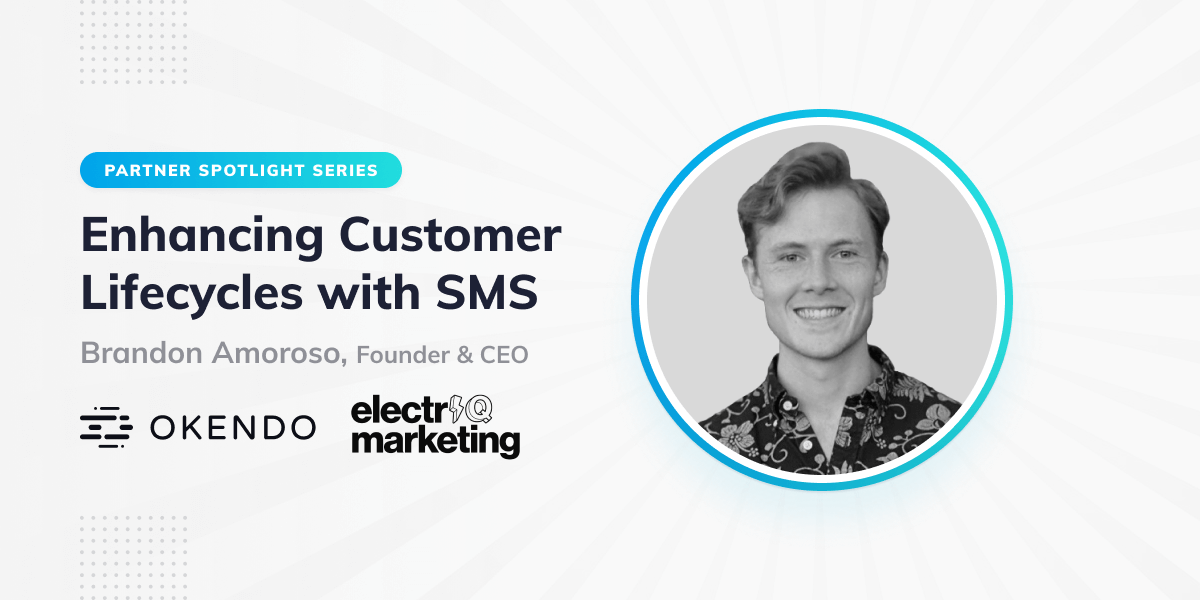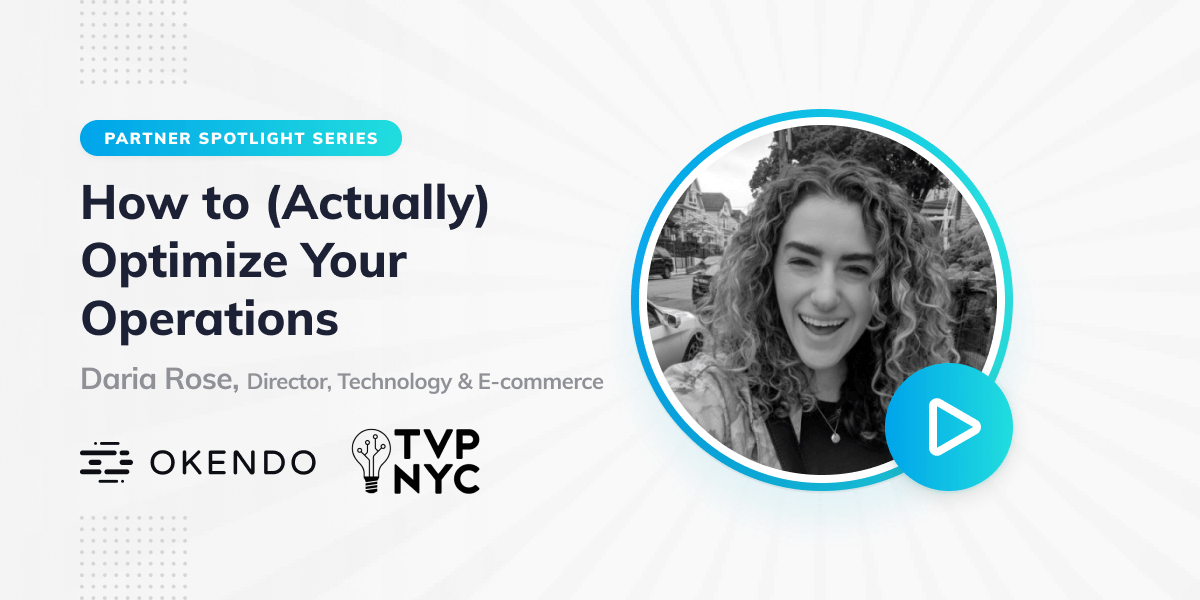Swanky is an award-winning Shopify agency that offers design, development, and growth services to its extensive roster of clients. With over ten years of experience and offices in the UK and Australia, Swanky is renowned for its CRO expertise and bespoke marketing solutions.
I sat down with Sarah Sennett, Head of Agency Marketing at Swanky, to discuss her love for ecommerce, the differences between client and agency marketing, and the importance of community building for CRO.
How did you first get involved in the ecommerce space, and where does your passion for it come from?
I love this question because I’ll take any opportunity to nerd out about ecommerce! I first got involved when I launched my own stationery business on WordPress and WooCommerce many years ago (I’m incredibly fond of all things notebooks and paper). I thought it would be fun to build a store mostly for family and friends, but I got such a thrill from it that I started exploring the ecommerce space in greater depth. Creators’ ability to sell products they’re passionate about to a broader audience than they would otherwise have the chance to fascinates me. It’s also exciting how Shopify makes this opportunity more accessible than ever and shortens the launch process, so even tech newbies have the potential to build a successful business and bring the products they want to the market.
I got into ecommerce in a similar way! I felt such a buzz building my first Shopify store when I was only 20.
I love the freedom ecommerce brings, especially because of the massive shift in consumer mindfulness the pandemic catalyzed in the past 18 months. We’re all thinking differently about our shopping habits, so I can see the trend of buying from smaller retailers and craftspeople continuing in the future. There’s no reason why small brands can’t become global if they want to.
On a different note, how does agency marketing differ from other kinds of marketing you’ve done in the past?
Marketing for an agency is different from marketing on behalf of an agency’s clients. I was involved in planning campaigns and executing strategies for five or six clients at any given time in one of my previous agency roles, so I had to compartmentalize each brand’s needs. I loved it and am glad to have that experience, but I enjoy my current in-house position where Swanky is the only brand I have to focus on. I get to entrench myself in our brand elements, tone of voice, future content plans, and everything that makes our organization what we are.
I see how client-side marketing experience is advantageous because you have insight into what will and won’t work for Swanky before you try it. What are some of the most effective marketing strategies you’ve executed so far?
I’ve tried many different tactics for my previous clients, but what I keep coming back to with Swanky is inbound marketing. We’re not about cold sales, so the primary goals for our content are providing excellence, authority, and expertise. Positioning ourselves as an expert in our space entails showcasing our relationships with partners and clients and sharing our team’s broad range of knowledge, which works well and encourages clients to come to us instead of the other way around.
Swanky is particularly renowned for conversion rate optimization. How does your approach to CRO differ from other agencies’?
I’m grateful to hear that’s been recognized! We recently won CRO Agency of the Year in the UK Digital Growth Awards, which we’re incredibly proud of.
Our approach comes down to what I was saying about expertise — our team is full of individuals with unique backgrounds, so we have people who think outside the box and tackle problems from different angles.
Customer insight also underpins everything we do. It’s easy for businesses to say they’re customer-centric, but their CRO will be limited unless they genuinely understand what their customer journeys entail. Swanky looks at the challenge holistically instead of only focusing on particular customer touchpoints. We ask ourselves, what is preventing customers from converting at any stage of their journey? How do we maximize growth and return? Those questions help us make the most significant impact for our merchants. The answers could be minor tweaks, but we’re not afraid to tell our clients if they need to make major changes.
What data sources does Swanky use to make its CRO recommendations?
The tools we recommend depend on the project, but we have close relationships with Webtrends and Dynamic Yield. In my experience, it’s better to have as much data as possible, but there comes a point when it’s overwhelming, and merchants lose the ability to interpret it all. Swanky is unique in our CRO offering in that we have a team of in-house analysts who have both CRO and business experience, so they can apply their expertise to get a bigger picture. Our team looks at numerous data points, but they’re skilled at identifying what is relevant and accurate.
Definitely. I’m also curious about your podcast, Marketing Mindset Club — what inspired you to start one for marketers? What do you want to achieve with your podcast?
That’s a question I’m still wrestling with myself! I started it because I wanted marketers to have a place to learn tangible things that would help them do better jobs. Countless interview-based podcasts exist out there, so it’s easy to learn about individual experts in various fields, but I find that kind of information is difficult to apply to day-to-day work. I wanted my podcast to cover the “so what?” aspect. As such, my format emphasizes three areas: what’s currently happening in marketing and why it matters, marketing theory, and campaigns I’ve personally run to test their effectiveness.
However, I’ve found myself going down the interview path. That’s still valuable, but I intend to rework my podcast to provide the body of knowledge I originally envisioned. Information becomes redundant without direction for applying it.
Swanky emphasizes building its clients’ customer communities. Why are communities essential parts of ecommerce strategies, and how do you recommend DTC brands create them?
I could talk for hours about this topic, but to be succinct, the first reason that comes to mind is zero-party data. As everyone in marketing knows, third-party cookies will soon be deprecated, and we won’t have access to the same kind of data we’re accustomed to about non-signed-in users. For those unfamiliar with the term, zero-party data refers to information customers give you first-hand. Survey responses are an example. Having a community grants you access to an audience that is already invested in your brand and doesn’t require you to rely on cookies. The nature of this community means they have likely purchased from you before, so there is already an advantageous element of customer retention built-in (it’s getting more expensive to acquire new customers from a paid marketing perspective). You can also leverage your community for referrals — it’s easy to ask them to become brand advocates and create UGC.
However, many brands assume building a community is more challenging than it is. New businesses have some inertia to get over, and small communities can feel like an echo chamber, but it’s worth doing if the investment pays its dividends.
Swanky’s values are Creativity, Strategy, Trust, and Ambition. What do those values mean to you, and how do you incorporate them into your marketing strategy?
Those values are a huge reason why I joined this company. For me, the creativity aspect means putting effort into what we do. It’s too easy to become overly attached to a calendar and get into a cycle of churning out meaningless content. Instead, we want to try new things and ensure our content is visually appealing and valuable. For instance, the Swanky Instagram account had been neglected for years, but we’ve recently reinvigorated it with a specialized visual style that features our work and client testimonials.
The other values depend on honesty. Trust is essential between agency and client. We don’t shy away from telling our merchants — in marketing and every other way we serve them — when something isn’t a good idea, or we don’t think a project will yield the best results. We wouldn’t be doing our jobs properly, otherwise. Strategy, trust, and ambition help us create long-term relationships with clients that take off.
That’s awesome to hear — an agency partner should genuinely want its clients to succeed.
What are some of the biggest mistakes you see brands making with their inbound marketing efforts, and how do you put them back on the right track?
One of the biggest mistakes is low-quality content. It’s critical not to prioritize quantity over quality. Brands don’t set out to produce low-quality content, but adhering to a calendar too closely creates temptation. Instead, brands need to return to the idea of customer-centricity: they need to create content that makes their lives easier and answers their questions. It’s easy to pay lip service by saying customers are at the center of what you do, but following through is difficult because you have to be able to challenge yourself and ask if something legitimately serves your audience. It’s hard to admit a project isn’t going in the right direction, but it’s an invaluable skill. We help our clients be honest with themselves and reset their strategies if necessary.
Swanky has grown quickly over the past ten years, but what would you say if you could give advice to your past self as a startup entrepreneur?
I would tell myself that it’s going to get tougher — you’ll have to stick with it — but if you do, there will be so many fulfilling opportunities. Words of encouragement would be more powerful than any piece of specific advice.
Sarah is contactable on LinkedIn or Swankyagency.com.





